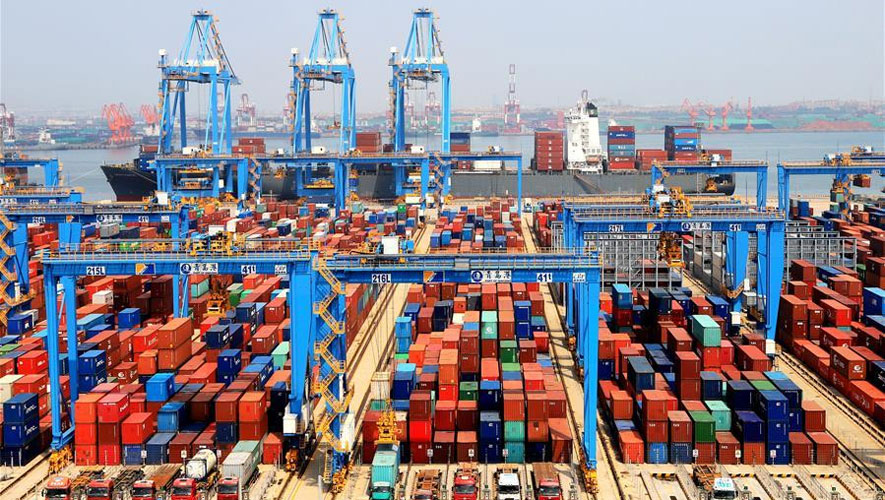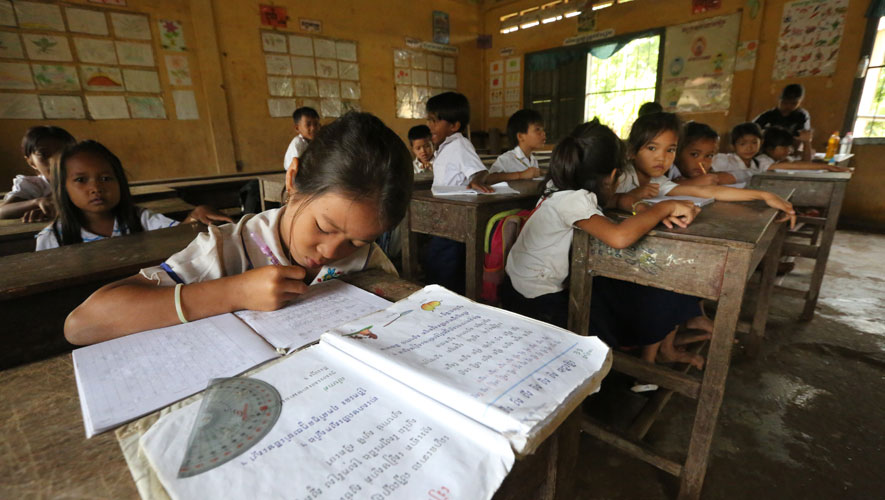Years of reforms were summarised succinctly at last week’s AmCham-AusCham tax briefing
For the latest Cambodian Business news, visit Khmer Times Business
Just six months on from the damning decision passed down by the Financial Action Task Force, the wheels of progress are turning slowly in Cambodia.
The Kingdom was officially placed on the global money-laundering watchdog’s “grey list” in February 2019 and, while investors seem relatively content to brave the Cambodian market, it underscored the need for Cambodia to clean up its act.
Taxation has been one of the tools that the Royal Government of Cambodia (RGC) has been keen to put to work in addressing revenue shortages.
Since ascending to the status of a lower-middle income country in the eyes of the World Bank some four years ago, the Kingdom has seen a reduced influx of official development assistance (ODA), which has driven the need to diversify income revenues for the state.
“The government has been trying to build this for a long time,” says Chheng Kimlong of the economic think-tank, Asian Vision Institute (AVI).
“If you were in Cambodia over the last 10 years, you will see their intentions to raise taxes for a long time to reduce reliance on external borrowing from the World Bank, from the IMF, from the ADB (Asian Development Bank.”
This, Chheng says, would generate enough government revenue to even offset the potential loss of the European Union’s Everything but Arms (EBA) preferential trading policy – if properly implemented. The sales tax rate (GST) is too high – at 10 percent – for such a young country, argues Chheng, who fears that the burden of tax reform will be pushed on to small to medium enterprises (SMEs) as the government tries to recoup all that stands to be lost in the current EBA debacle.
Others more optimistic
Others remain more optimistic and perhaps there is good reason to be. Tax revenues have been climbing higher and higher each year, with roughly 20 to 25 percent increases annually according to the General Department of Taxation (GDT). In the first six months of 2019 alone, the GDT collected as much tax revenue as it did in the entirety of 2015. With $1.3 billion already generated by the second quarter of the year, 2019 looks set to smash the previous year’s record-high total of $2.2 billion and this, experts argue, is mostly because of the revised tax system.
“We used to have the estimated tax regime in Cambodia and more than 80 percent of all businesses here fell under that regime where businesses would negotiate upfront the annual tax they’d pay with the tax department,” explains Clint O’Connell, partner and head of tax at DFDL Tax Practice Group, “That kind of process, I understand, could be open to abuse on both sides – on the tax department’s side and the businesses’ side.”
The abolition of the estimated tax regime came about in 2016, because, as O’Connell puts it, “It obviously wasn’t working. Even though 80 percent of the businesses in Cambodia fell under that system, the revenue from that regime made up less than 5 percent of all tax revenues, which means that you have a 10 to 20 percent of registered businesses’ tax in Cambodia contributing to more than 90 percent of the tax revenue.”
From 2016 onwards the GDT has thundered forwards with more reforms aiming to bring the informal businesses that make up approximately 80 percent of Cambodian businesses into the formal fold. In the process, O’Connell says that the under-the-table practices of yesteryear are slowly dying out within the taxation process.
“It’s been quite a small window of time in which that process has changed and some businesses are evolving faster than others,” he adds.
Sense of transparency
These changes have been brought about with a view to integrating into ASEAN and creating a more developed taxation system of international standards, O’Connell suggests.
“Cambodia’s playing catchup to other ASEAN members and has to improve its whole internal systems with both customs and tax to deal with that transition and to deal with neighbouring countries.”
A new sense of transparency may seem like a mere by-product of enhanced taxation regulation but, as O’Connell notes, HE Kong Vibol has, since his appointment, made it his mission to professionalise the GDT.
“He treats his staff like you would at a professional firm. They have to be there at certain times, meet certain KPIs (key performance indicators) and so he’s trying to install professional ethics into the tax officer and, while it would be naive to think that no questionable practices will carry on … they’ve made some big strides into getting it right,” says O’Connell.
While the GDT could not be reached for comment on the matter, the implications of new taxation laws run deep and have wide-reaching consequences for the Kingdom.
DFDL specialises in assisting large multinationals to comprehend and coexist within the Cambodian tax landscape, but for Roland C Almera, chief executive officer of Grant Thornton, those complaining about the push to formalise all businesses are missing the point.
“For companies that are not really paying the correct amount of taxes, of course it’s costing them more, but at the same time, that is bringing into account that tax is really a part of the cost of doing business. It’s just not been paid before.”
What many businesses in the Kingdom fail to realise is the benefits that such a taxation system brings about for them as business owners, contends Almera.
“Companies that were already paying the right taxes are actually saving. Because now that they are formally a taxpayer, they can claim the correct tax credits, like for VAT (value-added tax), withholding tax, they can have savings,” he notes. “Whereas, in the past, everything was negotiated. So we don’t know if the negotiation [that] negotiated the amount is really the right [amount of] taxes.”
The added costs to companies – in particular SMEs – are also fairly well negated by incentives according to Almera. He concedes that for many businesses, there will be a need to hire an accountant because the tax auditors will consider businesses without a Kampuchea Institute of Certified Public Accountants and Auditors (KICPAA) registered accountant in a poor light on the assumption that the company’s accounts will not be kept in order.
‘Missing half the equation’
“If you fail to produce all of the necessary documentation for your annual declaration, your tax rate is 40 percent instantly, as well as penalties, whereas hiring a local accountant at $300 a month – that’s $3,600 a year, so the cost-benefit analysis is simple,” says Almera, who has noticed a reluctance among business owners to adapt to the new tax regime.
According to Almera, businesses are “missing half the equation” when it comes to realising the benefits available from VAT credit available on purchases, the point of a withholding tax or how a prepayment on profit tax will be credited against their total taxes.
Most businesses are SMEs in the Kingdom and, as such, many of their collective employees are even eligible for salary tax, because any monthly salary of $300 or less is deemed too low to tax. As AVI’s Chheng notes, the government only wants to tax the middle class and rich Cambodians who can afford it.
For Almera, the progress is good, but the enforcement, implementation and adoption of this new regulatory framework is going to be key to its success.
“Now, you have a government that says, [companies should] use the International Finance Reporting Standards (IFRS) and the IFRS for SMEs … the businesses here don’t want to employ an accountant. They do it by themselves and make mistakes. How can you comply with international standards?”




